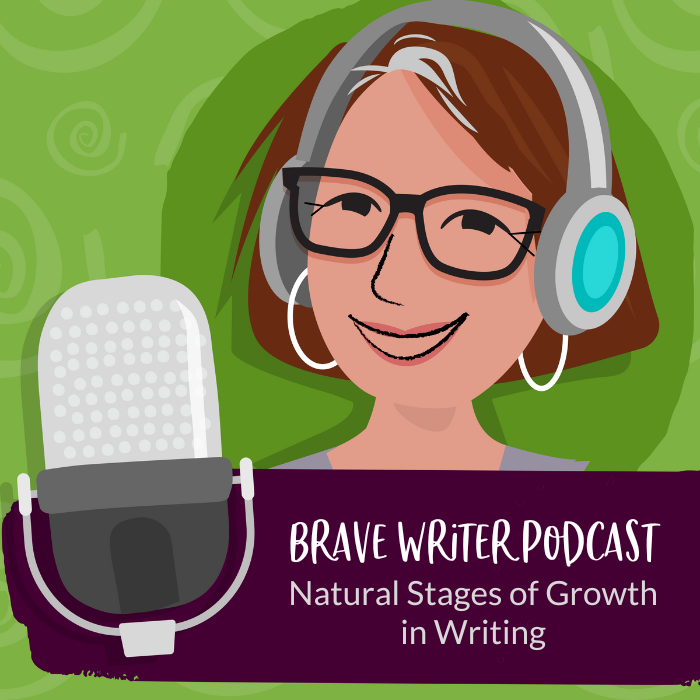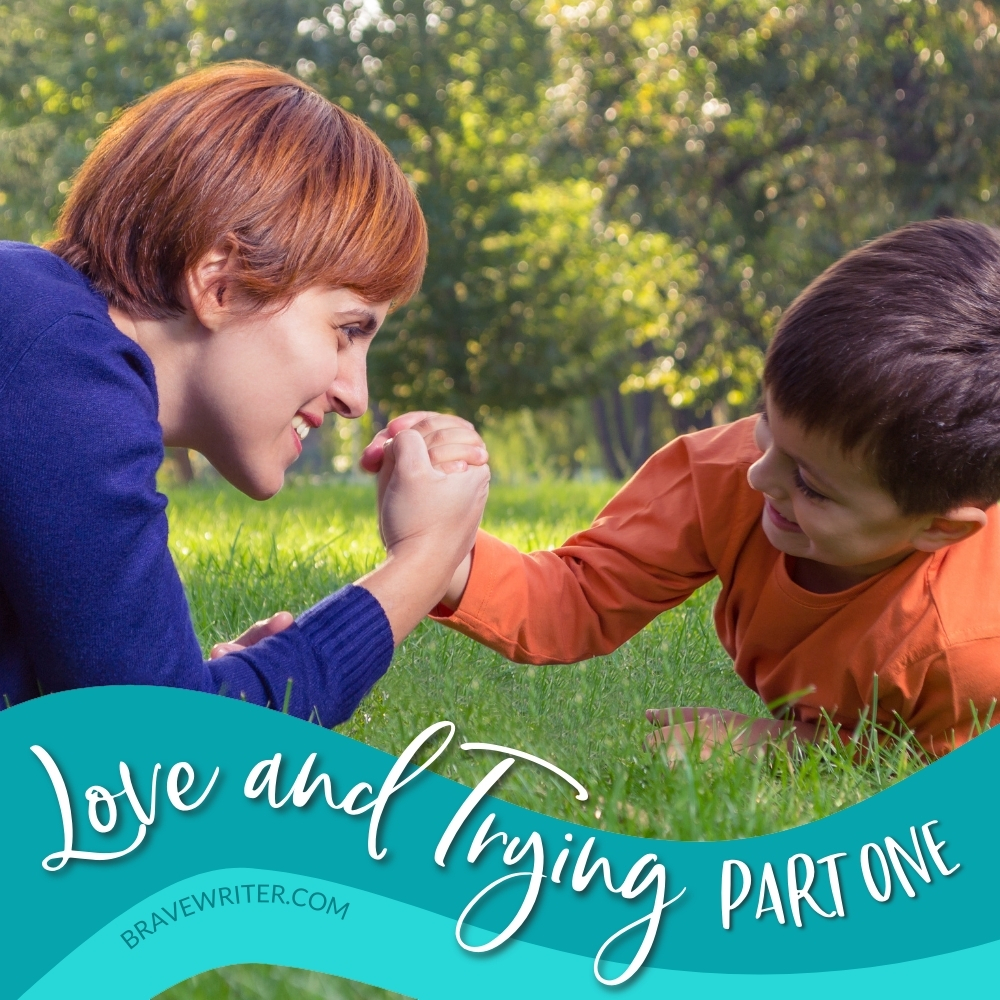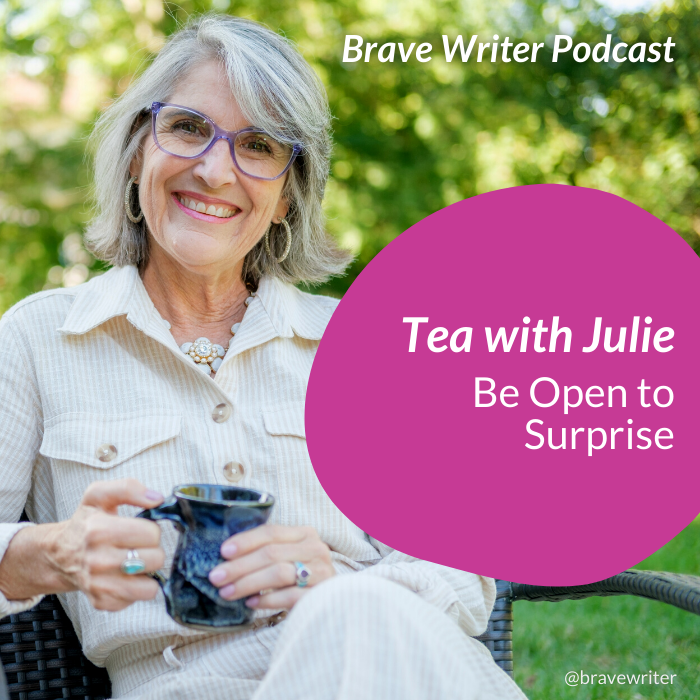
If you had to pick one, which would you choose: to live in the same place for your whole life or to move to a new location every few years. Explain your answer.
New to freewriting? Check out our online guide.

If you had to pick one, which would you choose: to live in the same place for your whole life or to move to a new location every few years. Explain your answer.
New to freewriting? Check out our online guide.
Tags: Writing prompts
Posted in Friday Freewrite | Comments Off on Friday Freewrite: To Move or Not to Move

Are you planning for the upcoming school year? Whether you’re homeschooling or sending kids to a traditional school, writing is that one skill that so many of us find unnerving.
One of the big problems is that your child’s age or grade level doesn’t tell you much about your writer. Writing develops the same way as any other skill: over time, at the writers’ own pace.
Over 22 years of working with tens of thousands of students, I’ve developed what I call the natural stages of growth in writing and my confidence in its accuracy has only solidified over time.
Today on the Brave Writer podcast, we’re going to walk through each of those stages.
This is the stage where a child is too young to write and isn’t quite reading yet, but is so eager to self-express. They are a writer in need of a secretary—someone to jot down their thoughts and read those thoughts back to them so they can experience being authors long before being able to write for themselves. This stage focuses on delight and the joy of writing.
In this stage, you are a partner with your child in writing. Participating in the writing process with our child is not cheating, but in fact opens them up to the benefits of the adult’s vocabulary, as well as the mental processing of getting words onto the page. The challenge is the gap between a child’s oral fluency and their writing, spelling, and punctuation skills. This is normal—children will continue to grow into the mechanics of writing, and your participation helps.
We tend to see two dichotomies at this stage of writing: Either a child shows a lot of enthusiasm for writing, or they absolutely hate it—often swapping between the two. They may write a lot one day only to refuse to write the next. Their spelling and punctuation may seem strong only to shift into reckless mistakes. They have a lot of competence, but many of their skills are still under construction. Allow them to self-express in the ways they like, and then give them rest from that commitment. The rough edges will smooth themselves out over time.
Once your child has built confidence and experience in using writing as a tool, they are ready to learn how to put that writing into the formats of academic life. These formats require a level of maturity and rhetorical imagination that doesn’t typically form until puberty. Kids at this stage feel comfortable with writing in general, even if they don’t yet know how to write an essay.
Your kids, when they enter academic life, are joining a conversation already in progress. As your kids get an education, they are going to be reading what the experts and others have to say and amassing an understanding of what interests them the most. By the time they graduate, they will be called on to make meaningful contributions to those fields.
These are adults not afraid to write their words, including professional writers, academics, and confident, competent adults. Once you’ve made it through all of the stages of writing, you should be able to face any writing task without worry or intimidation.
Visit bravewriter.com/stages to learn more about how our products and classes are organized according to these stages and find the ones that are going to help you.
Posted in Natural Stages of Growth in Writing, Podcasts | Comments Off on Podcast: Natural Stages of Growth in Writing

There’s no tactic that ensures a child will match a parent’s fantasy. There’s only love and trying, over and over—until the child knows they are loved, and the parent knows the child is a unique, wholly separate person. Give up notions of perfection.
I’m not a perfectionist. I mean, my house was two parts loose shoes down the hallway and one part missing math books while I raised my five kids.
I explained this passionately to my therapist who had just accused me of “perfectionism.”
I even pulled out my phone and showed him photographic evidence of the chaos that proved I was a relaxed, mess-loving mom who indulged her kids’ flights of creativity despite the empty pretzel bags.
He paused and looked at me: “Julie, you’re a perfectionist in your relationships.”
[A moment of silence as that shocking fact sinks in.]
A perfectionist in my relationships.
Um: guilty!
That meant I wasn’t ever okay if my people were unhappy or moody or tired or angry. My out of order relationship felt to me like a cluttered counter to a tidy mother. I got busy organizing feelings, responding with hugs, thinking about how to be a better mother to this child right now.
I had this unrealistic (invisible) belief that I could achieve a relationship utopia—a mutually affirming, kind, harmonious day-to-day peace—forever—with all the people I love—never uttering the stray, wrong word.
Turns out: exhausting and impossible. Each day is fresh, each experience is original. A responsive parent is one who can handle the clutter of sadness or frustration, who isn’t undone by a moment where the connection to a child falters. It’s like getting comfortable with the messy art table. Relationships are messy.
Loving the person, the messy feelings and home, trying to be aware enough to grow and recover when we forget. That’s it.
And it turns out? It’s enough.
Here’s Part Two.
This post is originally from Instagram and @juliebravewriter is my account
so come follow along for more conversations like this one!
Posted in Homeschool Advice | Comments Off on Love and Trying – Part One

I am recording some of my Tea with Julie emails for the podcast for those of you who prefer to listen. These are brief messages of support for parents and educators. If you’d like to receive the weekly emails, they are free. Sign up at bravewriter.com/tea
Let’s talk about the Four Forces of Enchantment. Over the next few weeks, we’ll discuss:
Today’s topic: SURPRISE!
If we want our kids to be open to surprise then so should we be.
One of the most difficult parts of any relationship is the fantasy we create in our heads of how it should go as compared with how it really is. We have scripts, we have characters, we have motivations.
But sometimes, if we stay open, if we can hold back from projecting our expectations onto the ones we love, we might find ourselves surprised.
Complete Tea with Julie notes can be found HERE.
Resources
Connect with Julie
Tags: Forces of Enchantment, Tea with Julie Podcasts
Posted in Podcasts | Comments Off on Podcast: Be Open to Surprise

Remember the last time you were late for an event or appointment. Write about it!
New to freewriting? Check out our online guide.
Tags: Writing prompts
Posted in Friday Freewrite | Comments Off on Friday Freewrite: Running Late

I’m a homeschooling alum -17 years, five kids. Now I run Brave Writer, the online writing and language arts program for families. More >>
IMPORTANT: Please read our Privacy Policy.















